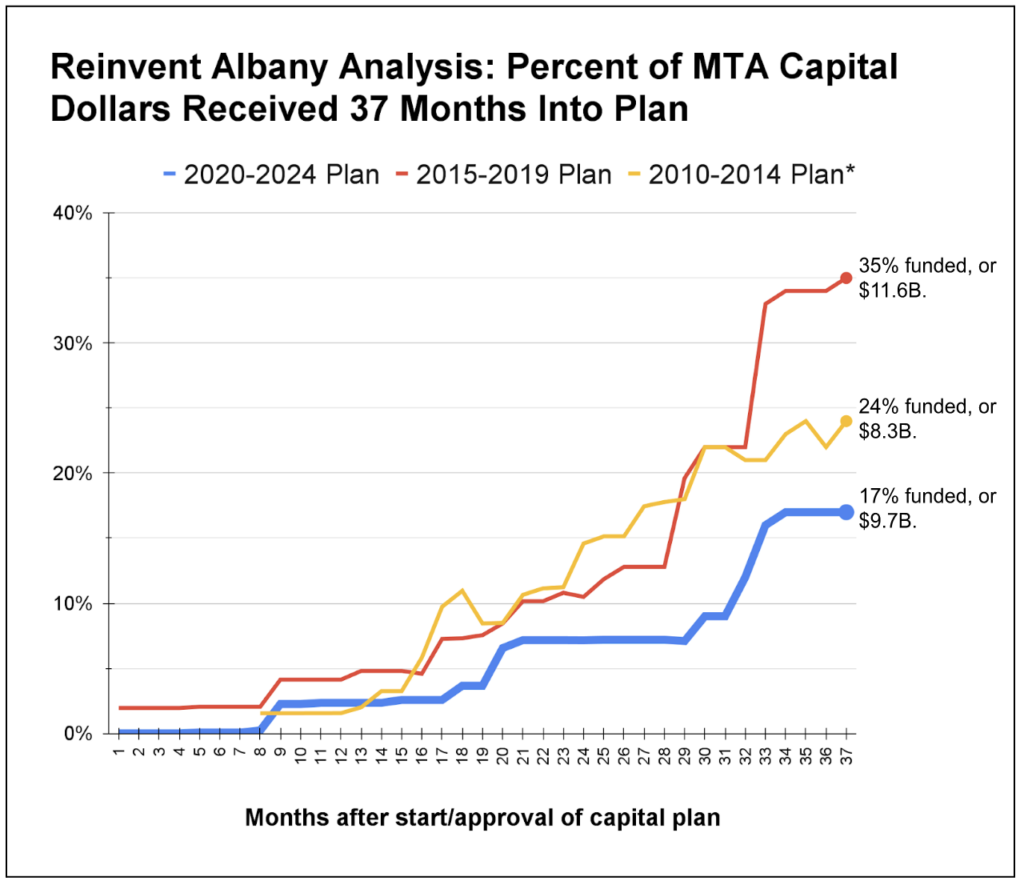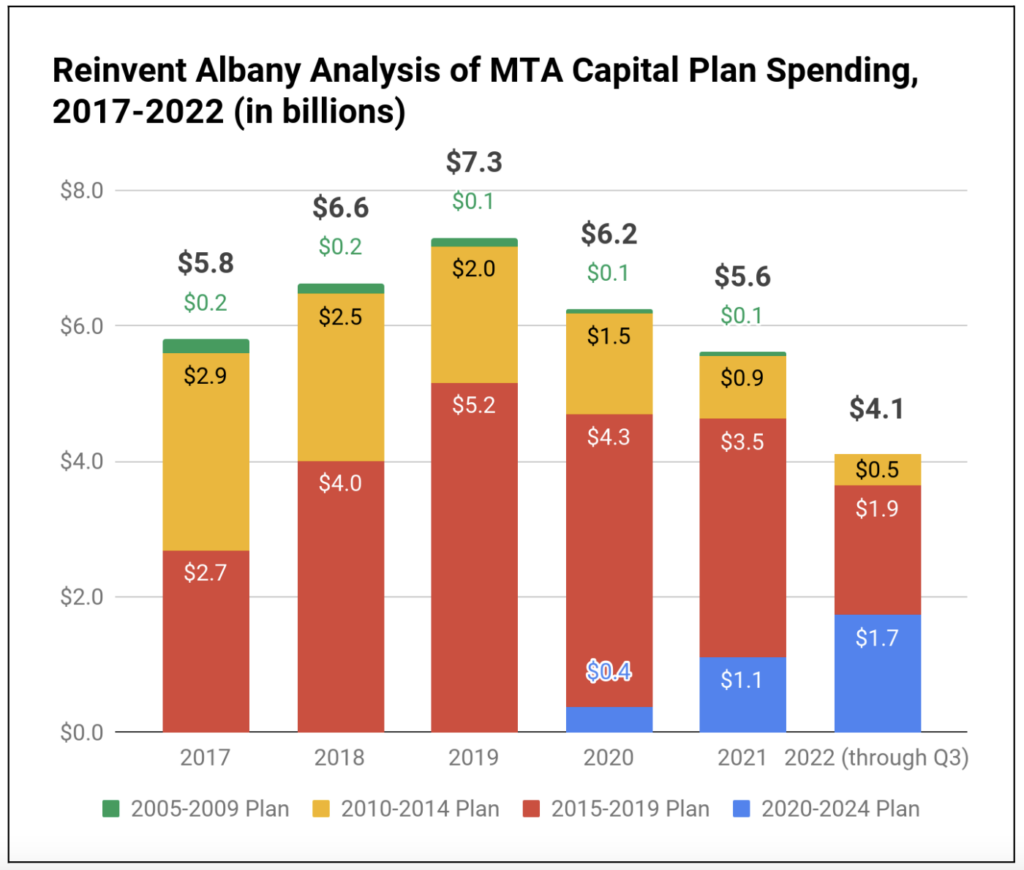Testimony to MTA Board on NYS Budget and Congestion Pricing
Good morning. I am Rachael Fauss, Senior Policy Advisor for Reinvent Albany. We advocate for more transparent and accountable New York government, including for authorities like the MTA.
With the release today of the updated February 2023 MTA Financial Plan, I would like to highlight why the Governor and State Legislature must ensure that the MTA’s fiscal cliff is addressed this year to avert an operating budget catastrophe, and why congestion pricing is still essential to fund the MTA’s 2020-2024 capital plan – which includes billions in basic maintenance that keeps trains and buses running.
MTA Operating Budget
We agree the MTA’s fiscal cliff is real, and asked in budget testimony for the Governor and Legislature to make good on the state’s historic funding commitments by:
- No longer raiding the Metropolitan Transportation Operating Assistance Fund, (MTOA) for the state’s 18-b program contribution (+$175 million/year);
- Increasing NYS 18-b contributions to adjust for inflation (+$125 million/year); and
- Adjusting PMT “make whole payments” for inflation (+$200 million/year).
Together, these NYS contributions would add $500 million to the MTA’s operating budget this year – which we note is the same size as the Governor’s proposal for new contributions from NYC. Going forward, these funds should continue to grow to adjust for inflation. (Increasing NYS’s 18-b program would also require a higher local match from NYC and the counties.)
MTA Capital Spending
On the capital plan, congestion pricing remains essential, and should not be raided for the operating budget. To date, only $9.7B of the $55B plan (17%) has been received by MTA, largely from federal funds ($6B).
Capital spending is also behind historic levels, and it is troubling that the MTA’s most ambitious plan yet is lagging – as of 37 months into the 2015-19 and 2010-14 plans, both were funded at higher levels, as shown in the chart below.

MTA capital spending is also behind, as seen from recent data from the MTA’s 2022 Q3 audit (note that this was in the Audit Committee materials, and there is a 3-5 month lag in this data being made available). While full data for 2023 is not yet available, congestion pricing’s delay appears to be having a significant impact on capital spending. See the chart below, which examines capital expenditures, not commitments – which we note are the start of the process when contracts are entered into, rather than the end of the process when contractors are paid for work completed.
Congestion pricing remains essential because the MTA cannot afford to make up for lost capital dollars from its own resources, given its operating budget deficit and debt service payments making up over 20% of its recurring operating revenues.
Thank you for your consideration.

